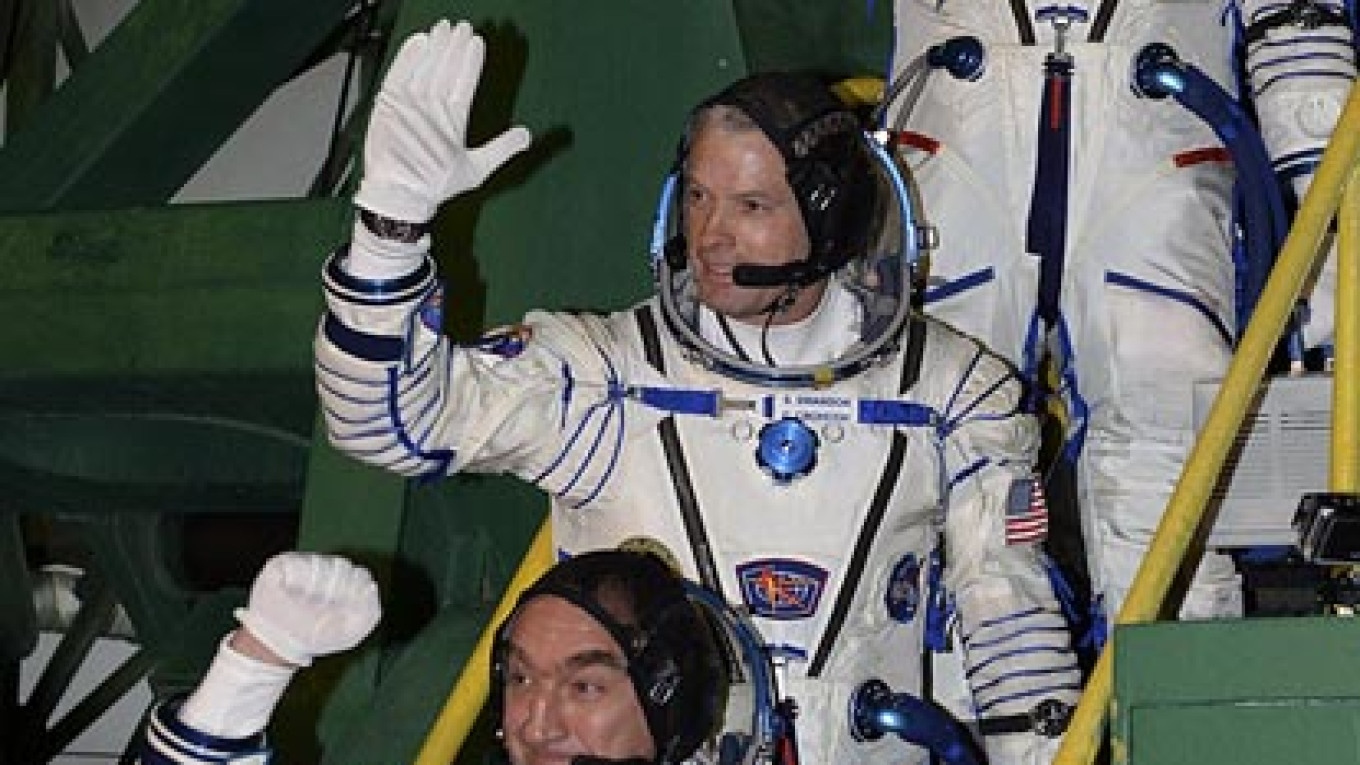The launch of Expedition 39, bound for the International Space Station with Russian and U.S. astronauts on board, was marred when the Russian spacecraft's engine failed to light at a critical moment in its six hour "fast-track" flight.
At 4 a.m Wednesday, while the Soyuz spacecraft was out of range of Russian tracking stations, the flight computer failed to execute the third burn, which is needed to kick the vehicle up to ISS orbit. At this point, the activity in Moscow Mission Control began to ratchet up significantly as Russian flight controllers and their NASA counterparts in Moscow and at Mission Control Houston raced to figure out the nature of the problem.
"We currently do not understand exactly what happened, so we will analyze and review all of the spacecraft's telemetry," Russian flight controllers told the Soyuz crew when the vehicle came back in range of Russian ground stations.
Not long after, Moscow Mission Control announced that the rendezvous with ISS had been postponed for three days. Because of the precision needed to accomplish the fast-track rendezvous with ISS, the computer's failure to initiate the third burn meant that the mission had to revert to "plan B" — the traditional two-day 34 orbit plan.
"In conversations between flight controllers in Moscow and Houston, initial information indicates the problem may have been that the spacecraft was not in the proper attitude, or orientation, for the burn," NASA said in a statement.
Vitaly Lopota, head of the Energia Rocket and Space Corporation that builds Soyuz vehicles for the Federal Space Agency, or Roscosmos, said that the attitude control, or guidance system's failure, likely resulted from a mathematical error, and that a special commission has been formed to properly analyze the problem, Interfax reported Wednesday.
Despite the setback, there is no immediate danger to the international crew, comprised of cosmonauts Alexander Skvortsov and Oleg Artemyev and astronaut Steven Swanson. They are in a stable "parking orbit" and have enough supplies for a longer, two-day flight to the station.
In the meantime, the crew has settled in, taking off their space suits and killing time as they slowly make their way up to the 370-kilometer orbit of the ISS.
"The crew is doing well on-orbit and the Soyuz is performing nominally," said Sean Fuller, NASA's director of human spaceflight operations in Russia. "The crew has conducted a couple of phasing burns to optimally align [Soyuz] for the 34 orbit rendezvous and subsequent docking with ISS."
A Roscosmos spokesman said that the next burn, scheduled for Thursday, "will be the third and final maneuver which will bring the ship to the altitude of ISS," at which point Soyuz and ISS will begin making minor adjustments to synchronize their orbits before docking on Friday morning.
The failure of the stage three orbital burn came as a surprise to flight controllers in Moscow Mission Control, as the Soyuz vehicle has built a reputation for being extremely reliable over its 40 years in service.
NASA and Roscosmos began using the "four orbit rendezvous profile" last spring. With this flight plan, the Soyuz vehicle docks with ISS on its fourth orbit after launch, rather than the traditional 2-day, 34 orbit trip.
U.S.-Russian space cooperation has not been affected by growing tensions over Russia's annexation of Ukraine. The U.S. has an agreement with Russia to pay nearly $71 million per seat to fly astronauts to the space lab through 2017.
Contact the author at [email protected]?
Follow him on Twitter for updates – @mattb0401 and @MoscowTimes
A Message from The Moscow Times:
Dear readers,
We are facing unprecedented challenges. Russia's Prosecutor General's Office has designated The Moscow Times as an "undesirable" organization, criminalizing our work and putting our staff at risk of prosecution. This follows our earlier unjust labeling as a "foreign agent."
These actions are direct attempts to silence independent journalism in Russia. The authorities claim our work "discredits the decisions of the Russian leadership." We see things differently: we strive to provide accurate, unbiased reporting on Russia.
We, the journalists of The Moscow Times, refuse to be silenced. But to continue our work, we need your help.
Your support, no matter how small, makes a world of difference. If you can, please support us monthly starting from just $2. It's quick to set up, and every contribution makes a significant impact.
By supporting The Moscow Times, you're defending open, independent journalism in the face of repression. Thank you for standing with us.
Remind me later.


